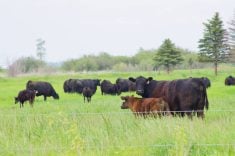The French farming system cannot survive without biotechnology, says a representative of a multinational farm chemical company, yet distrust of this new-age agriculture remains widespread.
“Our guys won’t trust science,” said Herve de Trogoff, director of DuPont’s global cereal enterprise.
While there is no official moratorium on biotechnology in France, there is powerful resistance to it coming from Germany and the United Kingdom.
De Trogoff recently told the Crop Protection Institute’s annual meeting in Calgary that the European consumer sees no benefits in products created by gene manipulation.
Read Also

House ag committee to undertake several studies
The House of Commons standing agriculture committee has set its agenda for the coming months. Members began the fall sitting with a two-hour update on international trade
The European Union does not have an equivalent to the Canadian Food Inspection System or the United States Department of Agriculture to handle inspections. Where government is absent, he said, more public debate will be necessary to demystify the issue.
Markets at stake
Evolving as a gunpowder manufacturer a century ago, DuPont is a leading chemical manufacturer with sales totaling $30 billion per year.
De Trogoff said he believes French agriculture cannot survive without biotechnology, he doesn’t think the future is bright for European corporations like his because of consumer skepticism.
“If European-headquartered companies can’t compete with North American companies, it will be disastrous.”
While chemicals remain the strong arm of DuPont, the multinational company recently formed a partnership with Pioneer Hi-Bred International to develop a better feed grain for livestock. The company has another arrangement with Qualicon to work on DNA testing for food safety.
An alliance was also formed with Wheat Enterprises in the United Kingdom to develop a protein technology.
DuPont has developed a high oil corn as an enhanced livestock feed. De Trogoff predicted that within 10 years, 40 percent of feed will contain this corn.
Modified polyester derived from cornstarch is also on its way. It can eliminate the chemical process used to make polyester. De Trogoff believes more corn derivatives will replace chemicals in the future.
If successful, it could mean 15 percent of the corn acreage could be used for these processes within 10 years. With these new varieties coming onstream, the company supports identity preservation and consumer choice.
“Identity preservation is the right way to inform the consumer on what is at stake,” he said.

















